
Blower Motor Resistors and Kits
What do Blower Motor Resistors do?
Blower Motor Resistors control the electrical current flowing from the fan switch to the blower fan, which allows the motorist to set the fan at different speeds. The fan speed can be changed either by switching the blower resistor resistance mechanically, using a rotating lever, or electronically by the air conditioning system.
What are the common causes of failure?
Due to technological advancements on today’s automotive heating and cooling systems, blower motor resistors have high amounts of current running through their connectors. As a result, the current produces heat that can melt the connector and resistor. Worn OE blower motors can create a demand for current that also damages the resistor or module. The excess current melts the wiring and plastic shroud, damaging the interface pins on the controller’s circuit board.
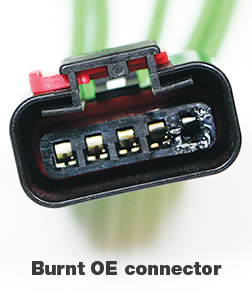
Product Spotlight: Blower Motor Resistor (BR532)
On most full-size GM trucks and SUVs from 2001–2007, the blower motor resistor has two common failure modes: water damage and excess heat. The GM vehicles are unable to manage condensation. If the duct is clogged, condensation will collect, creating a pool of water that can seep into, and flood the blower motor resistor module. Worn OE blower motors can create a demand for current that also damages the module. The excess current melts the wiring and plastic shroud, damaging the interface pins on the controller’s circuit board.
NAPA® Echlin’s BR532 Blower Motor Resistor features several improvements over the OE, including an umbrella cover design that prevents water intrusion and a larger-output power device and upgraded two-ounce copper board that protects against overheating.
-
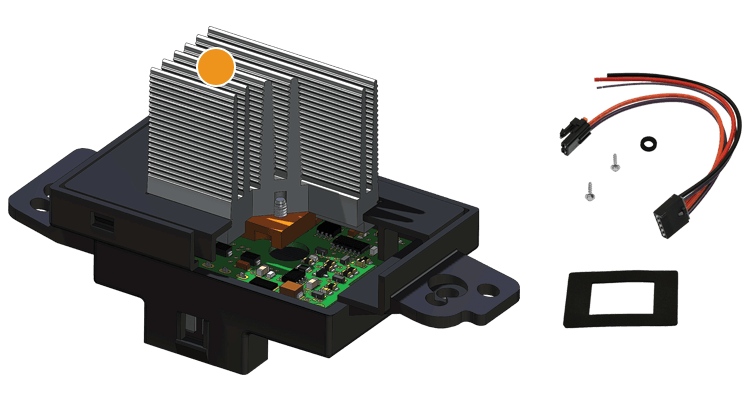
Larger output power device mounted directly to heat sink improves heat dissipation
-
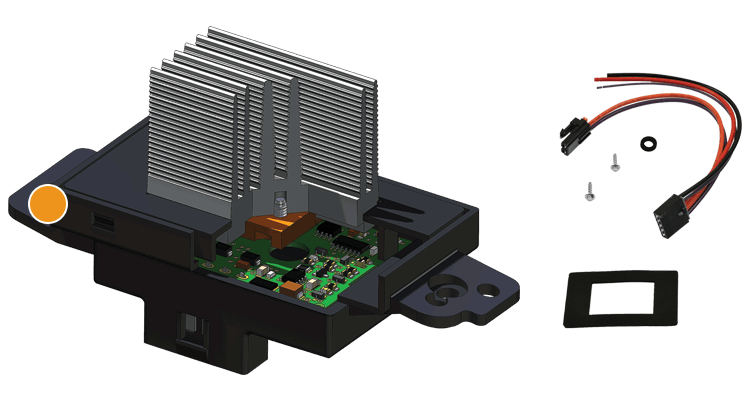
Improved umbrella cover design prevents condensation from entering module
-
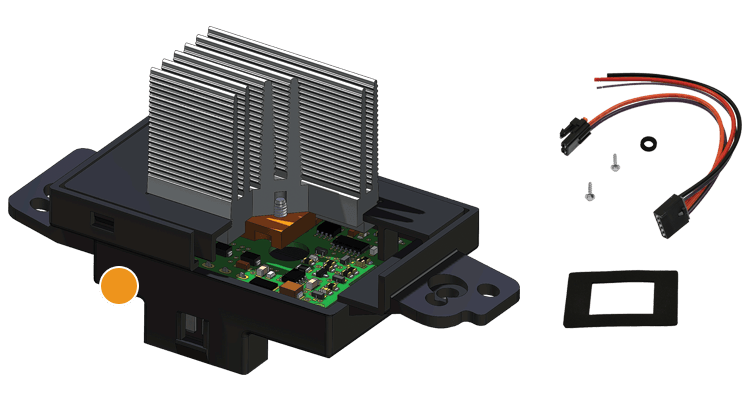
RTV sealant around heat sink and cover perimeter prevents water intrusion
-
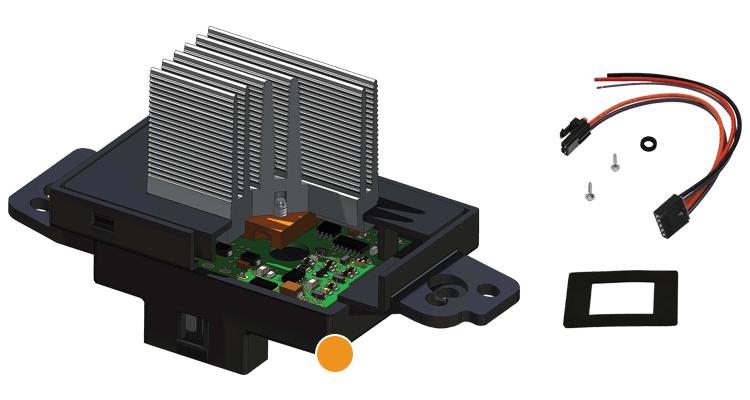
Manufactured in the USA
-
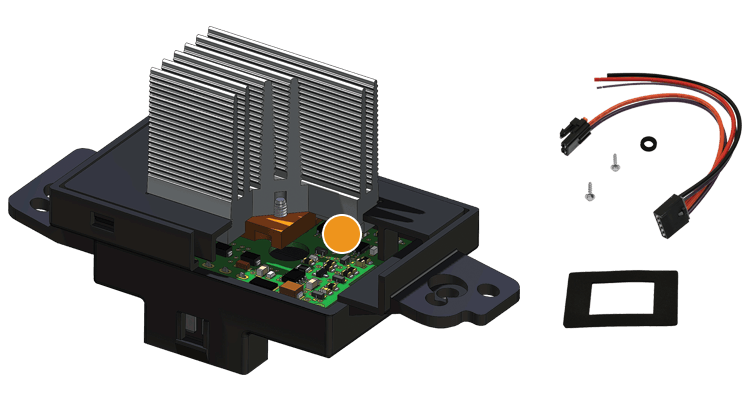
Upgraded 2 oz. copper board increases conductivity and power dissipation to prevent overheating
-
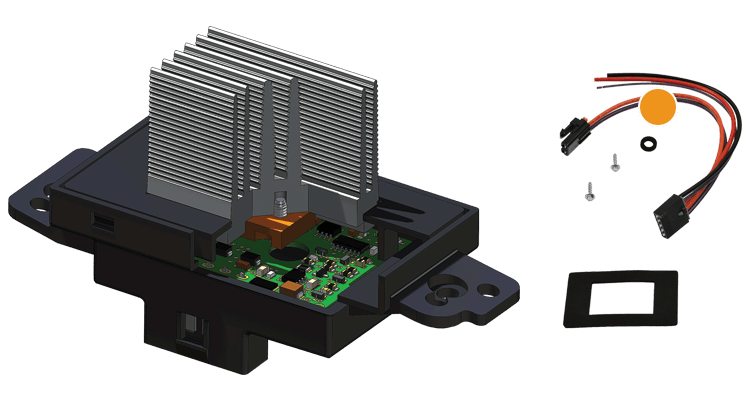
Included wire harness undergoes voltage drop testing to ensure performance
Tech Tip
For repairs, use an inductive amp clamp to check that the blower motor current draw is less than 80% of the fuse rating on high. If the current is too high, replace the blower motor. Otherwise, the new resistor will fail too. You should also inspect the mating connector for signs of damage caused by excess heat.
Download the NAPA® Echlin® BR532 Blower Motor Resistor flyer
Blower Motor Resistor Testing
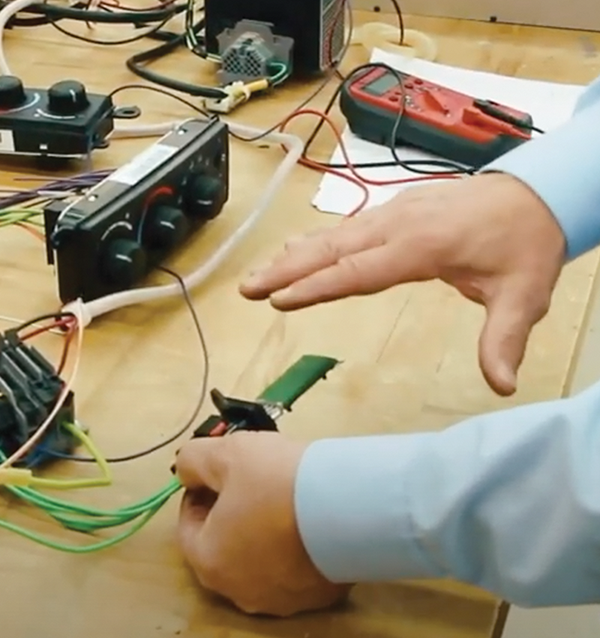
Our Engineers sample-test every blower motor resistor for draw, resistance and RPM. Test samples are validated to precisely match the OE specs and meet or exceed the OE for durability. We examine performance at all speeds, and then conduct 48-hour load tests.
It’s how we know our blower motor resistors will operate at peak performance and deliver a long service life under all operating conditions.
New BMR Kits featuring our High-Temp Harnesses
Hi-Temp Blower Motor Resistor Kits
NAPA® Echlin® is proud to offer premium Blower Motor Resistor Kits as a high-quality solution for melted connectors and blower motor resistors. NAPA® Echlin® improved on the OE design to create a connector that will withstand the excessive heat and reduce future failure. Our connectors undergo thermal cycling testing to withstand extreme temperatures to prevent melting. NAPA® Echlin® offers blower motor resistors that are direct-fit replacements and engineered to withstand the high amounts of current that can melt the resistor or connector.
View our NAPA® Echlin® Did You Know? Blower Motor Resistor Kits flyer
-
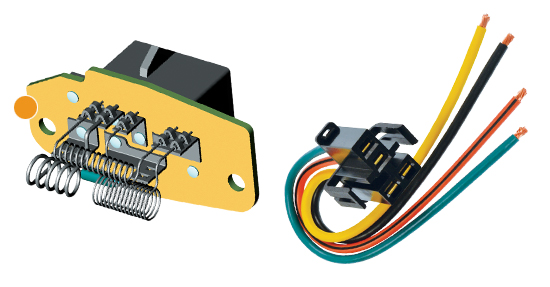
Direct-fit replacement electrically operated resistor that replaces damaged OD units restoring A/C and heater blower motor variable speed control
-
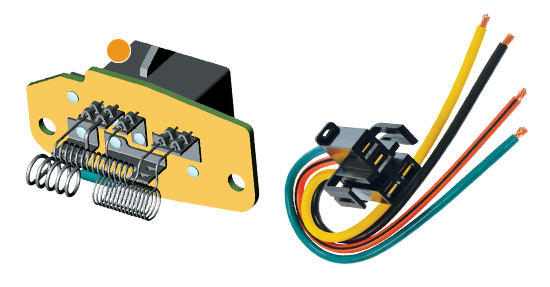
Tin-plated steel terminals guarantees maximum contact and excellent fit, form and function
-
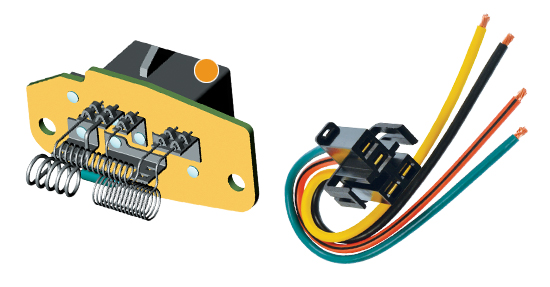
Made from high quality ceramics with copper electrical connectors to ensure accurate and precise resistance values for long life and high performance
-
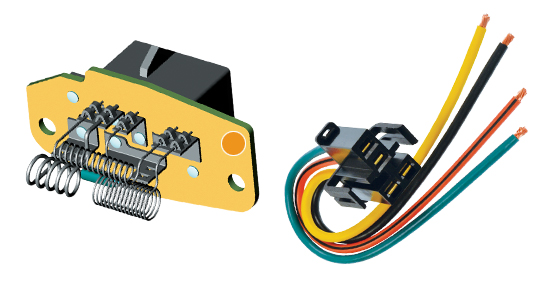
Thermally protected with on-board fuse
-
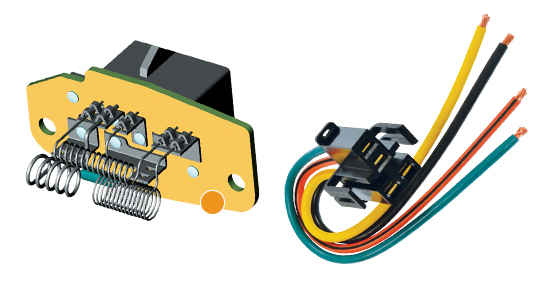
Our plants are IATF 16949 and ISO 9001 certified which ensures that every part is the right part for the right vehicle
-
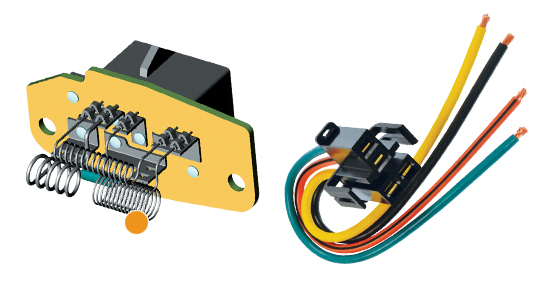
Precision resistor coils for better fan control
-
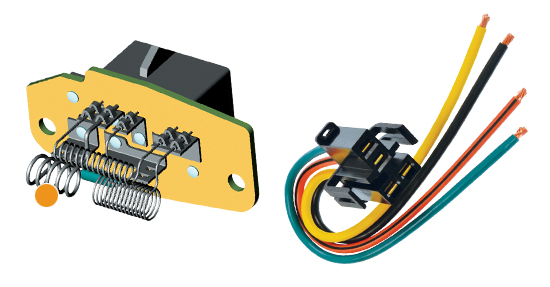
Kanthal D resistor wire provides longer life span for higher watt resistors
-
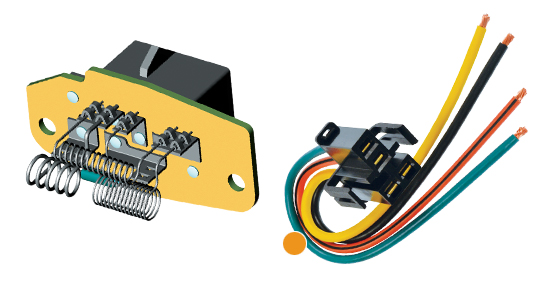
Undergoes testing with thermal cycling to withstand temperatures ranging from -22°F to 257°F
-
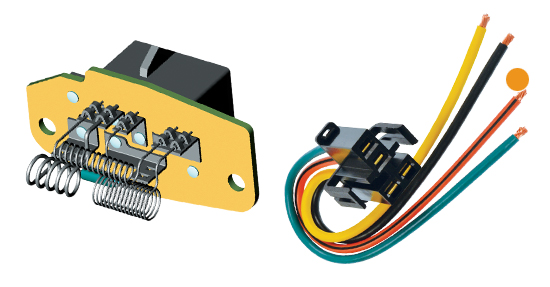
TXL copper wiring withstands high electric current to reduce heat-related failure
-
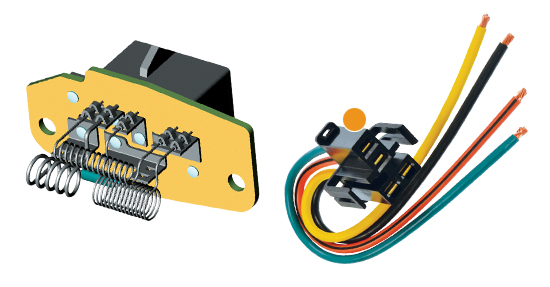
High-temp connector withstands extreme temperatures to prevent melting


